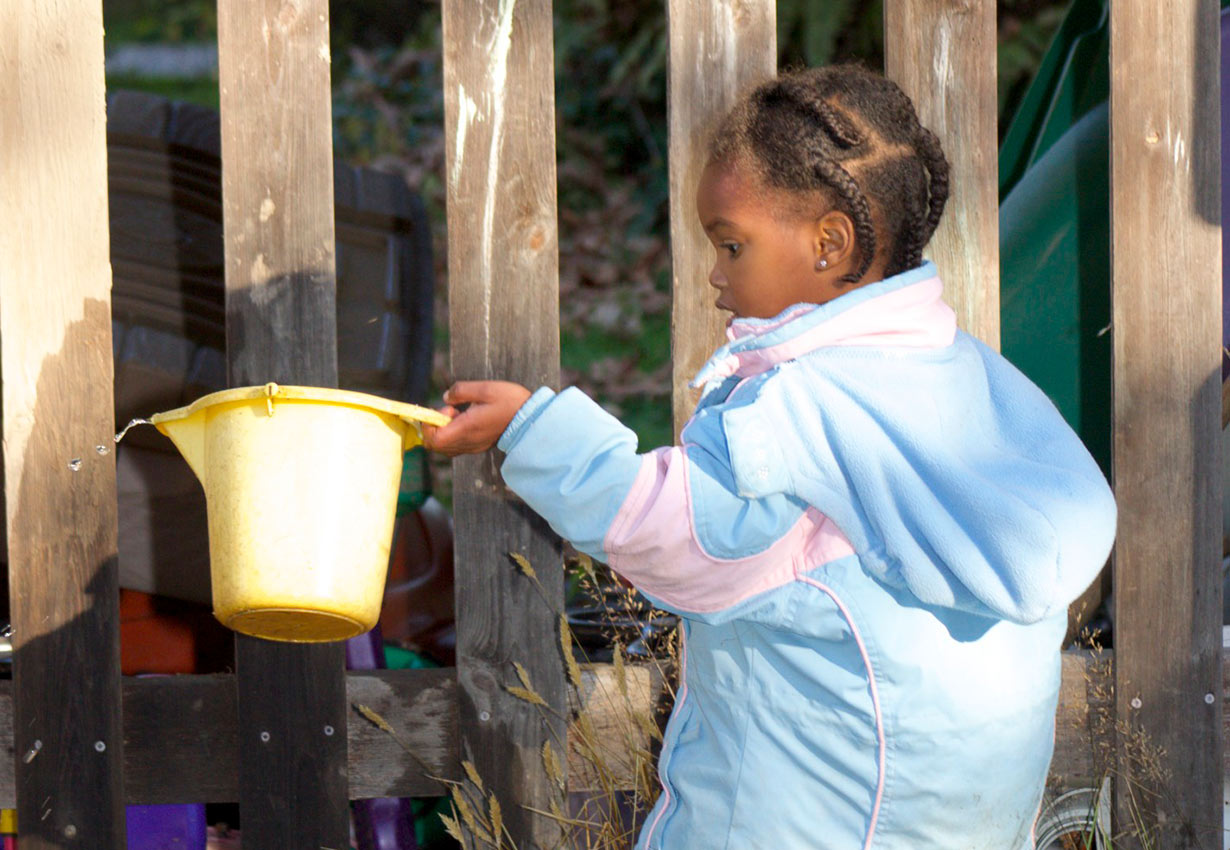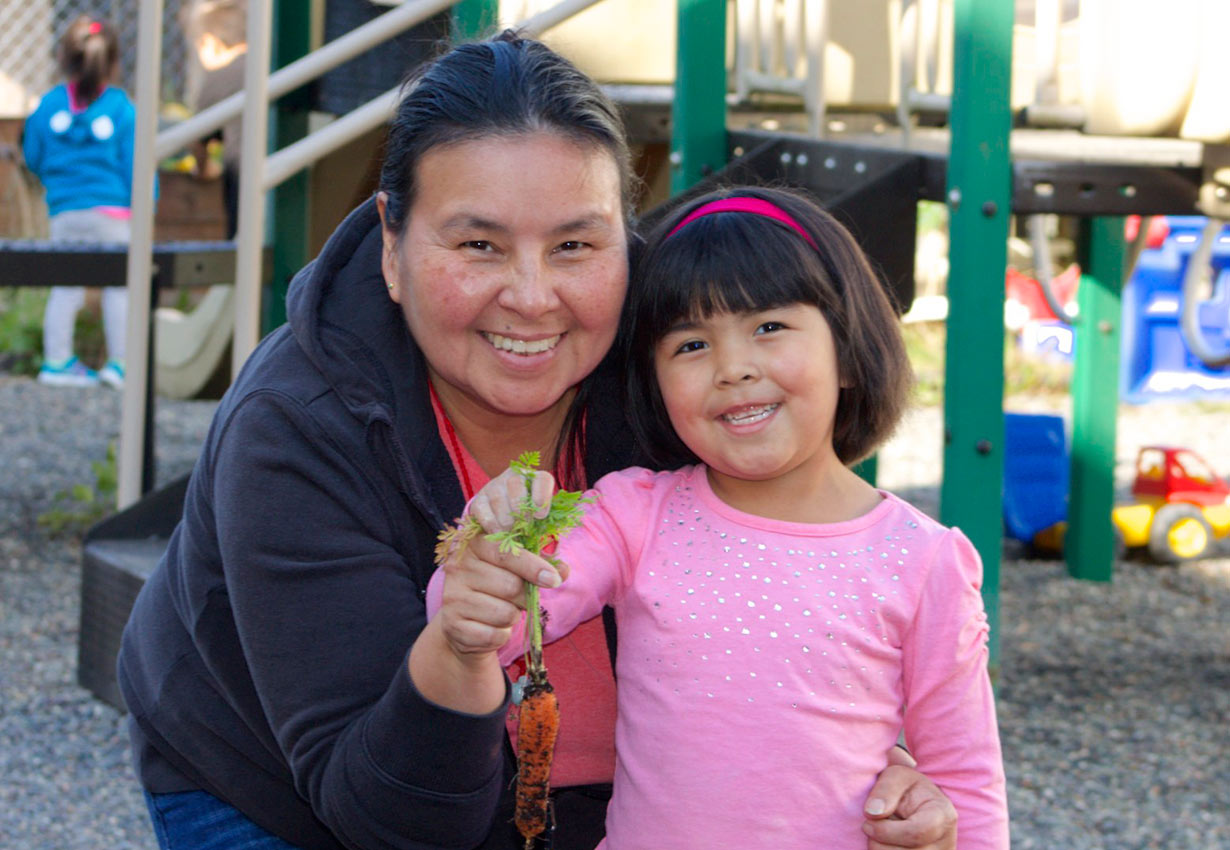Let's Talk About Touching (LTAT)
Let’s Talk About Touching (LTAT) is an inclusive child sexual abuse prevention developed entirely in BC for young children aged three to eight years of age. Delivered in early care and learning programs and primary classrooms by trained educators, the program supports young children to learn basic safety concepts and skills that can help protect them from sexual abuse. It teaches children that their bodies are their own and that they have some choice about who touches them and how they are touched. It helps them to differentiate between affectionate touches and sexually abusive touches and gives them some beginning skills to protect themselves: say “no” or “stop”, getting away, and telling someone.

LTAT Training
The third edition of LTAT was updated to reflect current educational practice and to be more responsive to the needs of a diverse population of children and their families and was designed for use in both early childhood programs and in primary grades (kindergarten to grade 3). The revisions were influenced by current research on sexual abuse prevention education for young children and an extensive program evaluation of the second edition. The third edition of LTAT was also developed in consultation with early childhood educators, primary teachers, sexual health experts, and other professionals who provided insight and guidance.
Training For ECE's & Teachers
The goal of LTAT Teacher Training is to provide Early Childhood Educators (ECEs) and primary teachers the training needed to open beneficial communication with children and families. Newly updated, the LTAT Teacher Training is delivered to educators currently working in programs and classes with children.
Completion of the 14.5 hour Teacher Training is required to access an LTAT kit. It is ECEBC’s policy that individuals participating in the Teacher Training are licensed Early Childhood Educators working in early childhood settings or teachers working in a primary classroom. This policy was created to ensure that LTAT is used sensitively and responsibly and to ensure that training is delivered by teachers with regular and ongoing responsibility for the children receiving the program.
Following teacher training, participants submit an implementation package to ECEBC.
A free virtual community of practice is available for LTAT trained classroom teachers of 3-8 year olds. This opportunity is a great way to connect with peers, share experiences, gain support with implementation and stay fresh in your practice. Space is limited and participation is eligible for professional development credits.
Professional development certificates are issued upon successful completion of the implementation package. Note: A discounted refresher rate is available for teachers who have previously completed training and have a kit.
The Kit
Let’s Talk Teachers are provided with a kit as part of their training and contains the following materials:
- A program manual that includes nine lesson plans and a variety of resource materials that can be shared with families. The materials are available in multiple languages.
- 8 teaching pictures (11”x17” photographs) depicting positive touch.
- 10 felt board figures and 4 cards of felt board words.
- 45 sorting cards of positive touch.
- 2 puppets with 16 interchangeable faces to represent different characters.
- Let’s Talk Song Collection, a CD of children’s songs recommended in the lessons.
- 2 teaching dolls: One boy doll and one girl doll.
Training For Community Supports
ECEBC recognizes the importance of developing local networks of administrators, community agencies and professionals who can support the Let’s Talk prevention program. Other applicants will be considered on by a case-by-case basis. As non-implementing attendees, a kit will not be provided. Please contact: acharker@ecebc.ca to discuss eligibility.
Communities may wish to contact ECEBC to discuss teacher training or other custom training in their communities. LTAT information sessions for other interested health and social service professionals and community members are available on request.

Becoming A Let's Talk Trainer
ECEBC is looking for experienced and knowledgeable trainers to offer the LTAT Teacher Training to educators in their communities. The Train-the-Trainer program prepares experienced program facilitators to offer Let's Talk Teacher Training to ECEs and primary teachers in their communities. It is ECEBC’s policy that facilitators who qualify to become LTAT Trainers have the necessary skills and abilities to work with groups of adults. These include good communication skills, comfort with public speaking and some knowledge of, or experience with, teaching and facilitating groups working with sensitive content. The aim is to maintain a high quality of teacher training through the province. Ideal candidates have at least two years recent experience teaching children and implementing the Let’s Talk About Touching Sexual Abuse Prevention Program in classroom and/or a combination of comparable skills and experience.
ECEBC recognizes that our training policies may not apply to all communities in British Columbia, particularly those where no trained ECE or Primary School Teacher is available. For such communities, ECEBC acknowledges that other health and social service professionals may be the best choice for participating in training and will examine each situation on a case-by-case basis.
For more information and to receive an application package, please contact Annie at amaglieri@ecebc.ca
Child Care Provider FAQ's
The Let's Talk program manual includes a sample letter for families, a parent newsletter and handouts on the lessons in 7 languages. Parent meetings are recommended prior to beginning Let’s Talk in your centre or classroom.
Since Let's Talk is designed for children 4 to 6 years of age, you will need to be careful to direct your instruction only to the children in your centre in that age range. Some family child care providers report that bringing in an additional caregiver on days when the program is being delivered helps to keep the focus on the appropriate age group.
Let's Talk: teacher training (for delivering the program to children), is a three-part process. Step one: classroom preparation (which) takes sixteen hours. Step two is participation in a virtual Community of Practice and Step three is the submission of an implementation package to ECEBC for approval.
Parent FAQ's
Let's Talk teaches children that their bodies are their own and that they have some choice about who touches them and how they are touched. While emphasizing the fun, caring and helpful touches young children experience in their lives, it helps them to recognize touches that are “not okay”. They learn and practice three safety rules: say “no” or “stop”, get away and tell an adult.
Let's Talk is delivered in a very child-friendly, sensitive manner and emphasizes positive, appropriate touch. A comprehensive evaluation of Let's Talk found that it did not cause anxiety, or confusion about positive touch.
Your child’s caregiver will be able to provide you with more detailed information about Let's Talk, including an information package and newsletter created specifically for parents.
People Are Talking!
What Early Childhood Educators are saying about Let’s Talk.
